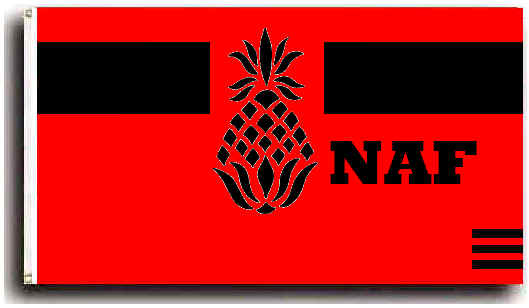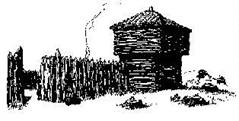| After the war
Thomas Paine returned to England in 1787. Soon
after the opening phase of the French Revolution,
Britain's foremost statesman, Edmund Burke, wrote
Reflections on the Revolution in France, a
scathing denunciation of the people's movement in
France. Burke's attack infuriated Paine, who
promptly set out to write his defense of the
French Revolution. In so doing he produced one of
the finest statements of eighteenth century
democratic philosophy ever formulated.
When The
Rights of Man was printed in America, it created a
new sensation. Not because of the principles
outlining American Jeffersonian democracy, but
because the publisher had printed in the front of
the book remarks from a letter from Thomas
Jefferson, in which Jefferson pointed a finger at
Vice-president Adams.
In England
The Rights of Man encountered a response like no
other in English publishing history. The poor
pooled their pennies, supplementing it with meager
savings to buy the book. The Rights of Man became
an underground manifesto, passed from hand to
hand, even when it became a crime to be found with
it in one's possession.
The book
became a bible to thousands of citizens who
dreamed of a free England. Time after time, when
men were tried for treason, invariably the Crown
offered as evidence to the jury the fact that
these men possessed a copy of The Rights of Man.
Outlawed for
treason, Paine fled to France in 1792, never to
return to England again.
And what of
the revolution that Paine had started in England?
Three generations would pass before even a small
part of the things Paine pleaded for in his book
would see fruition. Observed biographer Howard
Fast:
"Yet
one cannot say that the book had no effect. It
shook the government; it set thousands of people
to thinking. It stirred the currents in what had
been placid water, and once stirred, those
currents never stilled themselves. And not only in
England, but everywhere men longed for freedom,
Rights of Man became an inspiration and a
hope."
All of
Paine's works reflected his belief in natural
reason and natural rights, political equality,
tolerance, civil liberties, and the dignity of
man.
Paine has
been described as a professional radical and a
revolutionary propagandist without peer. Born in
England, he was dismissed as an excise officer
while lobbying for higher wages. Impressed by
Paine, Benjamin Franklin sponsored Paine's
emigration to America in 1774.
In
Philadelphia Paine became a journalist and
essayist, contributing articles on all subjects to
The Pennsylvania Magazine. After the publication
of Common Sense, Paine continued to inspire and
encourage the patriots during the Revolutionary
War with a series of pamphlets entitled The
American Crisis. Eventually, Paine went on to
write The Rights of Man.
When Paine
wrote Common Sense he was venturing into uncharted
waters. By the time he settled into writing The
Rights of Man, he did so with hindsight and
deliberately set out to write a document that
would shake the whole fabric of England.
The Rights
of Man has stood for more than two centuries,
pointing out paths in democratic government. Even
today, it would be considered radical by many.
It is one of
history's ironies that the volume written by one
of England's greatest statesman is by and large
forgotten....while Thomas Paine's answer to it has
become a classic.
Archiving Early America
|


